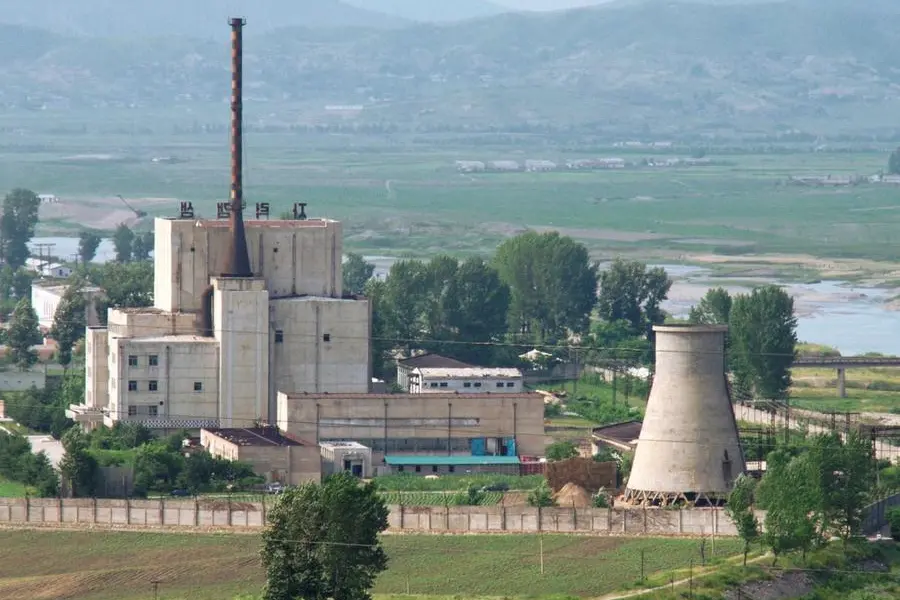PHOTO
North Korea has halted the nuclear reactor at its main atomic complex, probably to extract plutonium that could be used for weapons by reprocessing spent fuel rods, a South Korean news report said on Thursday, citing a government source.
The operation of the 5 megawatt nuclear reactor at the Yongbyon nuclear complex has been suspended since late September, according to intelligence assessment by U.S. and South Korean authorities, the report said.
"South Korea and the U.S. believe this could be a sign of reprocessing work being done to obtain weapons-grade plutonium," the Donga Ilbo newspaper quoted a government source as saying.
Reprocessing of spent fuel rods removed from a nuclear reactor is a step taken before plutonium is extracted. The Yongbyon nuclear complex is the North's main source of plutonium that it likely has used to build nuclear weapons.
North Korea has also operated uranium enrichment facilities, which is a separate source of material that could be used for nuclear weapons.
"The possibility of a nuclear test by North Korea is not ruled out," Donga Ilbo quoted a senior government official as saying, without elaborating on what analysis pointed to the assessment the move may be related to a nuclear test.
South Korea defence ministry spokesman Jeon Ha-gyu declined to comment on the details of the report but said U.S. and South Korean intelligence authorities are closely monitoring related developments.
North Korea has previously halted the operation of the reactor before restarting it and public confirmation of the purpose of such a move, whether it is for maintenance or for fuel extraction, is usually unavailable.
North Korea claims itself a nuclear state but has kept how many nuclear weapons it may have built or deployed a secret. Independent estimates of the North's plutonium range as high as 70 kg, which could be enough to build 20 or more weapons.
U.S. nuclear scientist Siegfried Hecker, who visited the Yongbyon complex in 2010, said despite the time North Korea has spent on the project, its capacity for producing plutonium and also the stock of fissile material itself are still limited.
Russia President Vladimir Putin, who recently hosted North Korean leader Kim Jong Un for a summit and pledged closer military cooperation with Pyongyang, could offer the North much needed help with all aspects of its nuclear programme, Hecker said.
"For the shorter term, what concerns me most is Russia clandestinely supplying plutonium directly," Hecker, a former director of the Los Alamos National Laboratory, said in comments published on the 38 North project.
North Korea has conducted six underground nuclear tests and there have been concerns since last year that it may be about to conduct another test as part of efforts to develop miniaturised nuclear warheads.
North Korea's parliament adopted a constitutional amendment last week on its policy of nuclear force. Kim has also ordered the production of nuclear arms to increase "exponentially" and to diversify its nuclear capabilities. (Reporting by Jack Kim; Editing by Lincoln Feast)





















